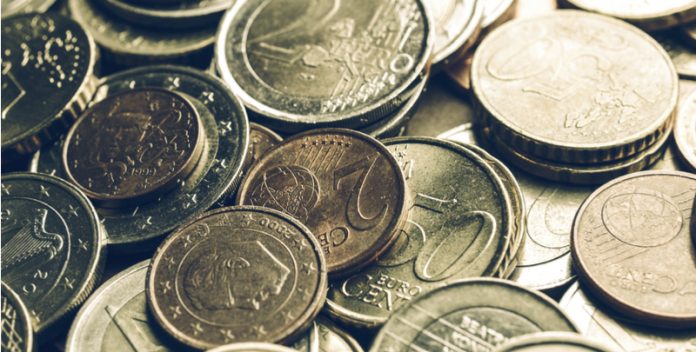The pound surged against the euro in the previous session, jumping over 100 points following an upbeat UK jobs report and a broad based weakness in the euro. The pound strengthened to a day’s high of €1.1311 versus the euro from a low of €1.1178.
| What do these figures mean? |
|---|
|
When measuring the value of a pair of currencies, one set equals 1 unit and the other shows the current equivalent. As the market moves, the amount will vary from minute to minute. For example, it could be written: 1 GBP = 1.13990 EUR Here, £1 is equivalent to approximately €1.14. This specifically measures the pound’s worth against the euro. If the euro amount increases in this pairing, it’s positive for the pound. Or, if you were looking at it the other way around: 1 EUR = 0.87271 GBP In this example, €1 is equivalent to approximately £0.87. This measures the euro’s worth versus the British pound. If the sterling number gets larger, it’s good news for the euro. |
The UK jobs report impressed investors on many levels. Britain’s unemployment rate unexpectedly dropped to 4.5%, the lowest level in 43 years. Employment levels hit a fresh record high at 74.9% and the jobless claimant count was just 6000, compared to the 10,000 pencilled in by analysts.
The key figure, wages growth, also beat analysts’ forecasts at 2% in the three months to May. This is slightly up on the figure of 1.7% of the previous month and is still significantly lower than inflation, which was 2.9% in May. This data highlights the squeeze being felt by the consumer as crucially the cost of living continues to rise whilst wages decline in real terms.
Wage growth is a lagging indicator and with the other figures in the UK jobs report, such as job creation and unemployment proving to be resilient, there is hope that this could signal a stronger period for wage growth is just around the corner. Following the report the pound rallied across the board.
| How does strong jobs data boost the currency? |
|---|
| It works like this, when there is low unemployment and high job creation, the demand for workers increases. As demand for workers goes up, wages for those workers also go up. Which means the workers are now taking home more money to spend on cars, houses or in the shops. As a result, demand for goods and services also increase, pushing the prices of the good and services higher. That’s also known as inflation. When inflation moves higher, central banks are more likely to raise interest rates, which then pushes the worth of the currency higher. |
Economic data is in short supply today and tomorrow so the pound could struggle to hang onto gains following the UK jobs report.
Given the quietness on the UK economic calendar, today the news driving the pound-euro exchange rate is likely to come from Europe.
Euro traders look to German inflation data
The euro has had several strong sessions over the past few weeks and has been one of the best performing currencies, pushing the pound-euro exchange rate to 8 month lows. The previous session saw a general weakness in demand for the common currency, as upside is limited until there is further clarification as to what the European Central Bank will do next. Interest rate expectations have no reason to drop right now, but they are certainty not increasing.
| Why do raised interest rates boost a currency’s value? |
|---|
| Interest rates are key to understanding exchange rate movements. Those who have large sums of money to invest want the highest return on their investments. Higher interest rate environments tend to offer higher yields. So, if the interest rate or at least the interest rate expectation of a country is relatively higher compared to another, then it attracts more foreign capital investment. Large corporations and investors need local currency to invest. More local currency used then boosts the demand of that currency, pushing the value higher. |
Today’s inflation figures from Germany look set to be the central focus for the GBP-EUR exchange rate. Inflation in the eurozone is remaining stubbornly low despite strong economic data across the region. Should inflation in Germany, often considered the powerhouse of Europe, rise more than the 1.6% anticipated,the euro could strengthen again.
|
This article was initially published on TransferWise.com from the same author. The content at Currency Live is the sole opinion of the authors and in no way reflects the views of TransferWise Inc. |





